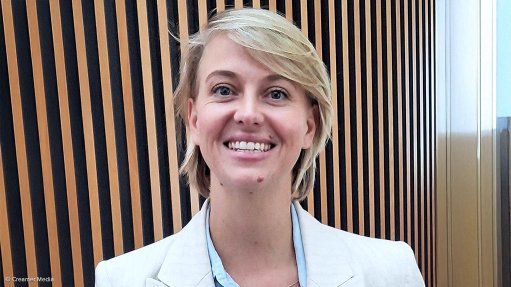SABS reports heightened need for face mask standards
National standards body, the South African Bureau of Standards (SABS), reports that the need for national standards has been highlighted during the outbreak of Covid-19 as the disruption of global supply chains has impacted the acquisition of personal protective equipment (PPE), related medical equipment and infrastructure to deal with the containment and management of the pandemic.
In the past few weeks, the SABS has transitioned to convening online technical committee meetings to ensure the important work of developing national standards continues with fewer interruptions.
“One of the priority projects that has emerged during the pandemic is to fast-track the development of an industry technical agreement (ITA) on fabric face masks, notes SABS standards executive Sadhvir Bissoon.
“It is important that the publication addresses minimum requirements and test methods for fabric type, reusable face masks,” he explains.
The SABS is mandated to develop, promote and maintain South African National Standards (SANS), which provide knowledge and support technical aspects of societal and environment policies and contribute to sustainable development.
It further serves as a vehicle for the dissemination of new technologies and innovative practices, facilitating trade while supporting industrialisation objectives.
Bissoon says that, given the lockdown measures in place, the SABS has had to review its operational model to ensure it continues to develop SANS and provide access to SANS during these unusual times. “The development of SANS is as a result of the voluntary participation and scientific input of various subject matter experts.”
He adds that the members of the SABS technical committees aspire to achieve consensus on the technical requirements to ensure that SANS are relevant and in the best interest of the country.
Further, the SABS states that standards do not exist in isolation and the need for conformity assessment, that is testing and certification, of products is equally important for quality assurance purposes.
“SANS can take anything from six to 24 months to be developed, depending on the complexity of the standard, stakeholder engagement process and achieving a consensus driven publication,” says Bissoon.
He says that standards are developed through an open, transparent and consensus process within technical committees and are subjected to a public enquiry process. In some cases draft standards are subjected to several rounds of public enquiry processes and SABS has the responsibility of ensuring that the comments are addressed where relevant.
“These are some of the factors that determine the length of time a standard takes to be developed,” he notes.
SABS currently has a collection of 7 400 SANS and continues to develop more standards.
Article Enquiry
Email Article
Save Article
Feedback
To advertise email advertising@creamermedia.co.za or click here
Press Office
Announcements
What's On
Subscribe to improve your user experience...
Option 1 (equivalent of R125 a month):
Receive a weekly copy of Creamer Media's Engineering News & Mining Weekly magazine
(print copy for those in South Africa and e-magazine for those outside of South Africa)
Receive daily email newsletters
Access to full search results
Access archive of magazine back copies
Access to Projects in Progress
Access to ONE Research Report of your choice in PDF format
Option 2 (equivalent of R375 a month):
All benefits from Option 1
PLUS
Access to Creamer Media's Research Channel Africa for ALL Research Reports, in PDF format, on various industrial and mining sectors
including Electricity; Water; Energy Transition; Hydrogen; Roads, Rail and Ports; Coal; Gold; Platinum; Battery Metals; etc.
Already a subscriber?
Forgotten your password?
Receive weekly copy of Creamer Media's Engineering News & Mining Weekly magazine (print copy for those in South Africa and e-magazine for those outside of South Africa)
➕
Recieve daily email newsletters
➕
Access to full search results
➕
Access archive of magazine back copies
➕
Access to Projects in Progress
➕
Access to ONE Research Report of your choice in PDF format
RESEARCH CHANNEL AFRICA
R4500 (equivalent of R375 a month)
SUBSCRIBEAll benefits from Option 1
➕
Access to Creamer Media's Research Channel Africa for ALL Research Reports on various industrial and mining sectors, in PDF format, including on:
Electricity
➕
Water
➕
Energy Transition
➕
Hydrogen
➕
Roads, Rail and Ports
➕
Coal
➕
Gold
➕
Platinum
➕
Battery Metals
➕
etc.
Receive all benefits from Option 1 or Option 2 delivered to numerous people at your company
➕
Multiple User names and Passwords for simultaneous log-ins
➕
Intranet integration access to all in your organisation
















